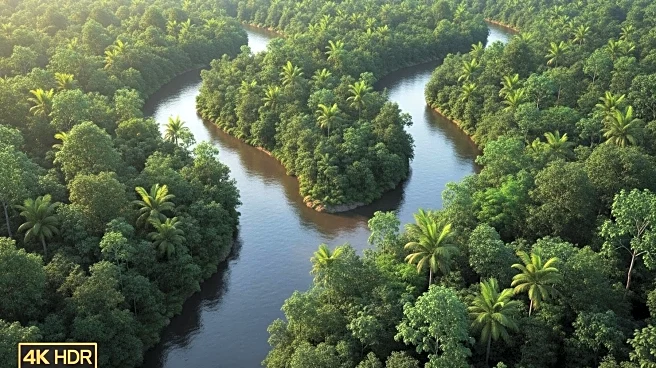What's Happening?
The town of Leticia, Colombia's sole access point to the Amazon River, is facing a potential landlock due to the river's changing course. This shift is causing tensions with neighboring Peru, as the river gradually moves southward into Peruvian territory. A Colombian Navy study predicts that within five years, Leticia could be cut off from the river, impacting trade and daily life. The situation has sparked a border dispute over the island of Santa Rosa, which lies in the Amazon River. Both Colombia and Peru claim the island, leading to diplomatic tensions.
Why It's Important?
The changing course of the Amazon River has significant implications for Colombia's access to vital resources and trade routes. Leticia relies heavily on river transport for food and supplies, and being landlocked could severely disrupt its economy. The border dispute with Peru over Santa Rosa highlights the complexities of riverine borders and the potential for geopolitical tensions. This situation underscores the need for international cooperation and sustainable management of natural resources.
What's Next?
Colombia and Peru are set to hold bilateral meetings in Lima to address the border dispute and discuss potential solutions. These talks could lead to agreements on shared use of the river and the island. The outcome of these discussions will be crucial in determining the future of Leticia's access to the Amazon River and the resolution of territorial claims.
Beyond the Headlines
The dispute over Santa Rosa reflects broader issues of national sovereignty and the impact of natural changes on geopolitical boundaries. It raises questions about the role of international law in resolving such disputes and the importance of diplomatic engagement. The situation also highlights the environmental challenges posed by shifting river courses and the need for adaptive strategies.











